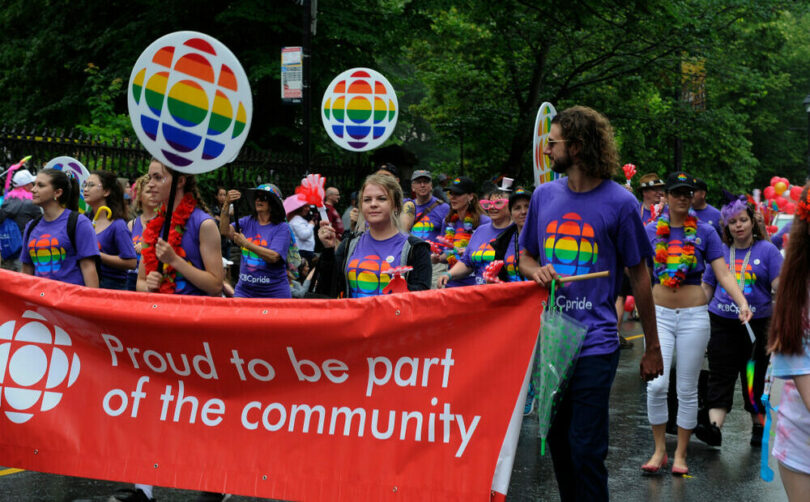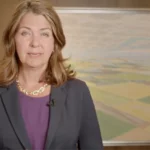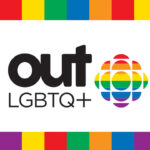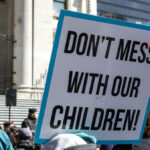LGBT+
The CBC’s campaign against parental rights, revealed
Over the past year, I have been consistently covering the way that the Canadian Broadcasting Corporation (CBC) and other Canadian media outlets have been serving as an activist propaganda arm for the LGBT movement, publishing – almost without exception – relentlessly negative coverage of recent parental rights legislation in several provinces. The claims of LGBT activists, no matter how dubious or debunked, have been published as fact; opponents of parental rights have been selectively interviewed while supporters have been largely ignored; the premises of the LGBT movement have been accepted as the foundation for much of the reporting.
Most egregiously, much of the alleged journalism on parental rights legislation – supported by super-majorities of Canadians in nearly every province – has asserted that parents do not have the right to know what school staff know about their children, and that to tell parents if children want to “transition genders” could risk the lives of those children. Canadian parents have been slandered by the press, over and over again.
The Hub has now detailed some specific numbers about the scale of that activism-as-journalism in a report titled “The CBC prioritizes allyship over objectivity in Saskatchewan parental consent coverage: An empirical analysis.” Dave Snow observed that CBC’s headlines alone direct readers to specific conclusions, with 37 percent of headlines on Saskatchewan’s parental rights legislation engaging in “attributed criticism.” Examples he notes include: “Families of trans kids, activists say they’re angered, scared, disgusted by Sask.’s pronoun law”; “Sask. Opposition says pronoun and naming policy motivated by politics, transphobia.”
Not a single one of the 38 articles Snow analyzed “contained attributed praise of the policy.”
Consider the scale of the bias:
As these headlines show, CBC reporters relied heavily on outside sources to describe the policy’s purported impact. To determine who those sources were, I coded every person or organization quoted in the 38 articles into three categories: supporters of the government’s policy, critics of the policy, and sources who were neutral towards the policy (I excluded quotes from the government, politicians, and the judicial injunction itself). I also distinguished between those whose opinions were clearly sought by the CBC and those whom the CBC quoted from the public record.
Across 38 articles, the CBC quoted more than five times as many critics of Saskatchewan’s policy as supporters (81 critics, 15 supporters, and five neutral). Moreover, supporters were grouped into a small number of articles, with six of the 15 supporters quoted in a single story about competing public rallies. Only 16 percent of the total articles (six of 38) quoted at least one supporter of the policy, compared to 95 percent of articles (36 of 38) that quoted at least one critic of the government’s policy. And support was never presented independent of criticism: all six articles that included a quote from a supporter also included at least one quote from a critic.
Further, Snow observed, the CBC made virtually no attempt to interview anyone who could offer a cogent defence of the policy – understandably, as this would contradict their activist aims. Indeed, Snow notes that a poll showing widespread support for parental rights in Saskatchewan went unmentioned by the CBC. More:
The critics quoted by the CBC were also far more likely to be in a position of authority, while supporters were almost entirely laypeople. Of the 59 critics whose opinions were sought out by the CBC, 26 were what I classify as ‘experts’ – lawyers and legal scholars, professors, school board presidents, health professionals, and LGBTQ organizations – and a further six were teachers. The focus on expertise was even higher from those quoted from the public record: of the 22 critics who were quoted from the public record, twenty (91 percent) were experts or organizations representing experts. By contrast, CBC reporters did not seek out a single ‘expert’ to speak in favour of Saskatchewan’s policy. Of the 13 quotes from supporters that were sought by the CBC, nine were from community members or protestors at rallies, while four were from the leaders of three small socially conservative interest groups.
As I have been observing in this space for months, this is because the Canadian media – of which CBC is the most egregious (and taxpayer-funded!) culprit – is actively seeking to herd their viewers, listeners, and readers towards a conclusion they themselves hold: that parental rights are a cheap excuse for bigotry.
This isn’t an exaggeration – in September, the CBC published an explainer titled “Where did the term ‘parental rights’ come from?” in which they explained that: “Those who are critical of the term say it’s a misnomer that excludes LGBTQ parents or parents of LGBTQ children, and implies that parental rights take precedence over children’s rights.” In this case, of course, the “children’s rights” being referred to include the right to change genders with the assistance of school staff without parental knowledge or involvement.
The CBC is funded by Canadian taxpayers, many of whom are parents working hard to give their children a good life. And in response, the CBC publishes a non-stop series of smear jobs aimed at convincing Canadians that parents should be kept in the dark while activist educators introduce them to new ideologies and worldviews. Snow’s conclusion is correct: We should defund the CBC, and let them survive without being funded by people they hold in contempt.








